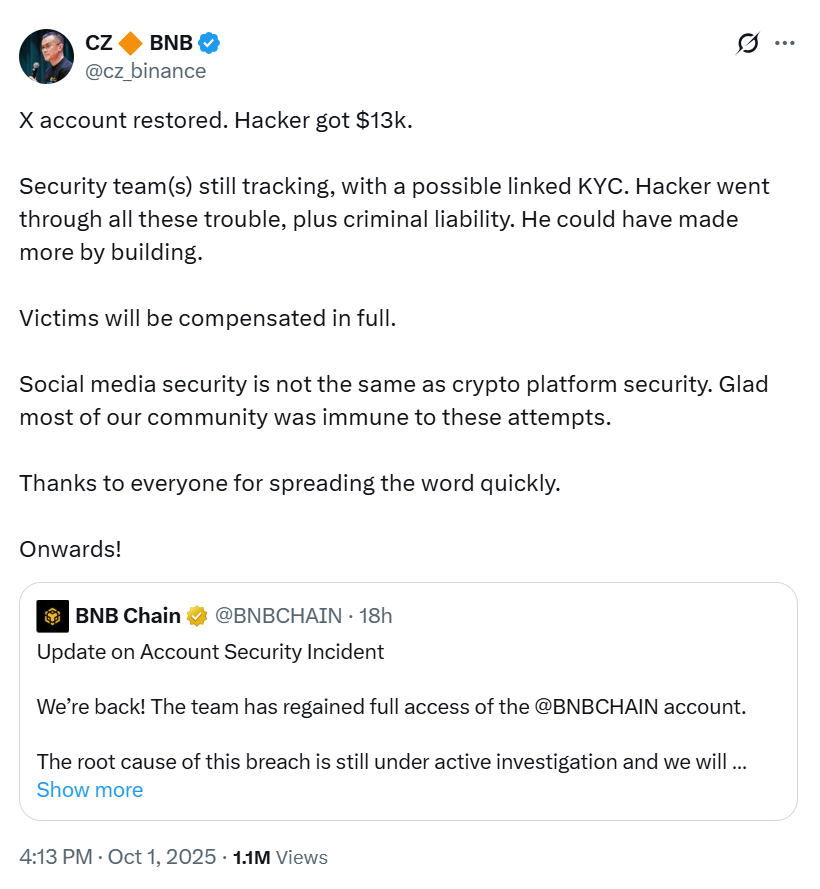According to founder Changpeng “CZ” Zhao, the attacker briefly hijacked the account to spread fake “Wallet Connect” links designed to trick users into signing malicious approvals. Binance quickly contacted X to suspend the account and filed takedown requests against the phishing domains.
CZ warned the community: “The @BNBCHAIN X account may have been compromised. Please do not click on any links recently posted from this account.” He also urged users to carefully verify all domains, even when links come from official social media handles.
Small Losses, Victims to Be Reimbursed

The incident resulted in losses of about $13,000, a modest sum compared to previous phishing campaigns that stole millions. Binance has pledged to fully reimburse affected users. Its security team is still tracking the attacker, who may have exposed their identity through KYC verification.
In the past, similar phishing schemes have led to much larger damages, such as one case where a user unintentionally approved a fake Uniswap transaction and lost over $3 million. These scams, which mimic genuine swaps or wallet connection prompts, have grown increasingly sophisticated—enough to fool even experienced crypto users.
BNB Chain Sees Strong Network Activity
Ironically, the attack occurred while BNB Chain was enjoying a surge in traffic. On September 28, daily fees on the blockchain climbed to $1.4 million, surpassing Solana for three consecutive days. The network also processed a record 16.5 million transactions the week before, highlighting its growing adoption.
BNB Price Remains Stable
Despite the breach, BNB’s price has held steady. At the time of writing, the token traded at $1,011.84, down just 1.5% in the past 24 hours and 0.5% over the week. However, BNB is still up 5.4% over the past two weeks, 18.3% in the past 30 days, and an impressive 76.5% year-over-year, outperforming most large-cap tokens.
This latest hack serves as a reminder of ongoing phishing threats but also underscores Binance’s swift response, which helped minimize the impact on its users.






